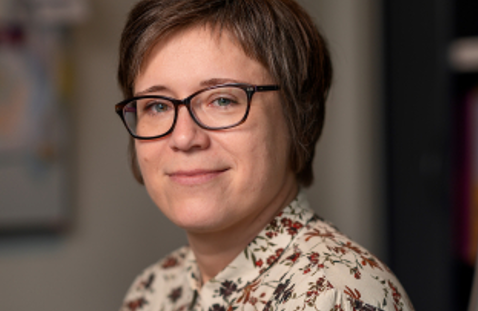Many organisations are concerned about the rise in domestic violence as a consequence of the coronavirus crisis. Among them are VUB and the Centre for General Welfare (CAW), with whom VUB works in Brussels. Official figures for Belgium are not yet available, but reports in France point to a 35% rise in physical and sexual violence. Other countries too are signalling an increase: in China, reports of domestic violence have trebled during the lockdown. Social workers Katrien van Rossem and Ann Van Malderen and VUB lecturer and researcher Kaisa Uzieblo are concerned about this trend.
---
Partner or family violence is never justified. Don’t hesitate to seek help if you need it. Students and staff who need support can call the following numbers:
- CAW: 0800 13 500 (free)
- Helpline: 1712
- Tele-Onthaal: 106
- Youth helpline Awel: 102
---
When things get out of hand at home
Katrien Van Rossem supports the team at the reception service of CAW Brussel, where they offer a listening ear. “Since the outbreak of the virus, we have been more concerned. The telephone and email support team has been tripled and the chatline is now open between 11.00 and 20.00. Because of the isolation people now find themselves in, they often lack an outlet for venting. Taking time out isn’t easy when you live in a small house. That’s when situations can quickly escalate. Because most agencies that can offer help are no longer physically open, it’s important that people seek contact via phone, email or social media.”
Because of the isolation people find themselves in, they often lack an outlet for venting.” – Katrien Van Rossem, CAW Brussel.
Talking to both parties
Katrien explains how she works when talking is still possible. “We try to always talk to both parties, even now. We assume that most perpetrators don’t want this situation either, aside from the few psychopaths who get a kick out of violence. Because it’s often an expression of frustration. Talking can help. We try to work out what the triggers are that lead to violence. We can identify these things and explain that it’s normal for people to be experiencing stress now. We are also extra alert to whether there is excessive drinking or drug use exacerbating the problem.”
Domestic violence is often an expression of frustration.” – Katrien Van Rossem, CAW Brussel
Accumulation of stress factors
Ann Van Malderen is the coordinator of the basic rights and financial assistance service at CAW Brussel. She wants to raise maximum awareness to ensure that victims and the vulnerable are not left out in the cold. “Domestic violence is related to an accumulation of stress factors. The coronavirus crisis has created extra stress factors for both victims and perpetrators – living in a small space, having the children at home, the lack of social control and the inability to go out. People who already tended to be too controlling and abuse their power are still doing that. Especially now there is so much uncertainty about the financial consequences, and the presence of children who are also experiencing tensions.”
Help for students and staff
The collaboration between VUB and CAW has been going for more than 30 years. “Back then there was a centre for life and family issues at VUB. VUB and CAW have never lost that connection because it’s so important to be able to offer staff and students good access to general wellbeing and support.”
It’s so important to be able to offer staff and students good access to general wellbeing and support.” – Ann Van Malderen, CAW Brussel
Uncertainty leads to stress
Kasia Uzieblo is a guest lecturer affiliated to VUB and teaches criminal psychology. She too points to strong indications of an increase in domestic violence. “In every crisis we see an increase; the WHO has confirmed this. There are various possible causes. First we are now forced to spend more time with each other. That causes tensions. Perpetrators of domestic violence are often people who struggle to deal with stress, expressing their emotions and talking about problems. So in these times when people are facing possible job losses and other uncertainties, stress can rise, leading to more conflicts.”
Continue the story below the picture.
Using fear of the virus
Uzieblo: “We know from the literature that partner violence isn’t something that appears from nowhere. For most couples it was already there before the virus struck. Social isolation is disastrous for these couples. What happens is the perpetrators of violence use this social isolation and fear of the virus to blackmail and threaten their victim.”
Some perpetrators of domestic violence use social isolation and fear of the virus to blackmail and threaten their victim.” - Kasia Uzieblo, VUB lecturer in criminal psychology
“Partner violence is complex. In one group, stress and conflict lead to violence. But there is also a large group in which the perpetrator strives for control of their partner and tries to obtain and maintain this in a very forceful way. That can be through psychological threats or physical violence. We’ve heard from testimonies that perpetrators also start spreading rumours about the virus so that victims believe, for example, that people have to stay together and nobody can leave.
“Luckily, in Flanders there are many initiatives that ensure people can quickly get help. But from research and fieldwork, we know there needs to be even more focus on this.”
---
Partner or family violence is never justified. If you need help, don’t hesitate to call one of the following numbers for support:
- CAW: 0800 13 500 (free)
- Helpline: 1712
- Tele-Onthaal: 106
- Youth helpline Awel: 102
